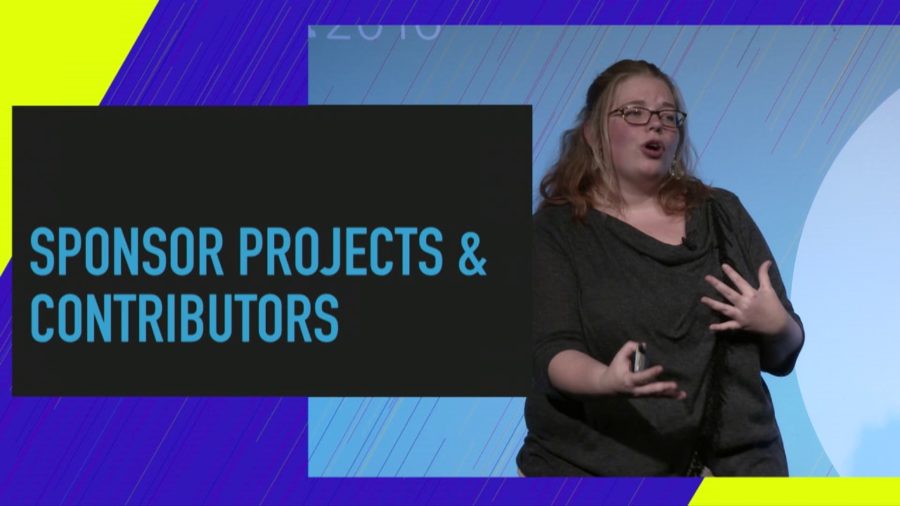Ashe Dryden: I think that you all discount exactly how bright it is up here. How are you? This my first time at MozFest. I’m super super excited. I’m really happy with the fact that many of the speakers have mentioned how technology has been positively and negatively impacting marginalized people, because that’s exactly what I do.
So, my name is Ashe Dryden. I run a traveling conference series called AlterConf that brings together marginalized people to talk about issues of diversity and inclusion in the tech and gaming industries. But I’m also a former White House fellow I’m around and tech and inclusion for LGBTQ people. So for last year, I was working on a project to help end police brutality in the United States, which is very um, optimistic. But as white people that’s our job, right? So thank you so— Yeah, I mean it is our problem.
So thank you so much for having me. Thank you for being here and for talking about something that I know a lot of people have a lot of feelings about. So I want you to know that you can hang on to those feelings and that you can still really get the gut of this talk.
I’ve been a technologist for fourteen or fifteen years. I love open source. I’m sure all of you love open source. Very many of us would not have our jobs, would not be able to do what we do, would not enjoy the technology that goes all the way from our fancy cars down to our baby monitors that are connected to the Internet, right?
So there are a lot of things that open source gives us, and I don’t want to discount that. I don’t want to discount the work that is put into open source, the people who do it freely and willingly. This talk is more about the coercion of labor into open source software. So I want to take a critical look at how we can engage businesses and other stakeholders in technology companies to begin to create a more equal and sustainable environment for all people contributing to open source. We love open source, right?
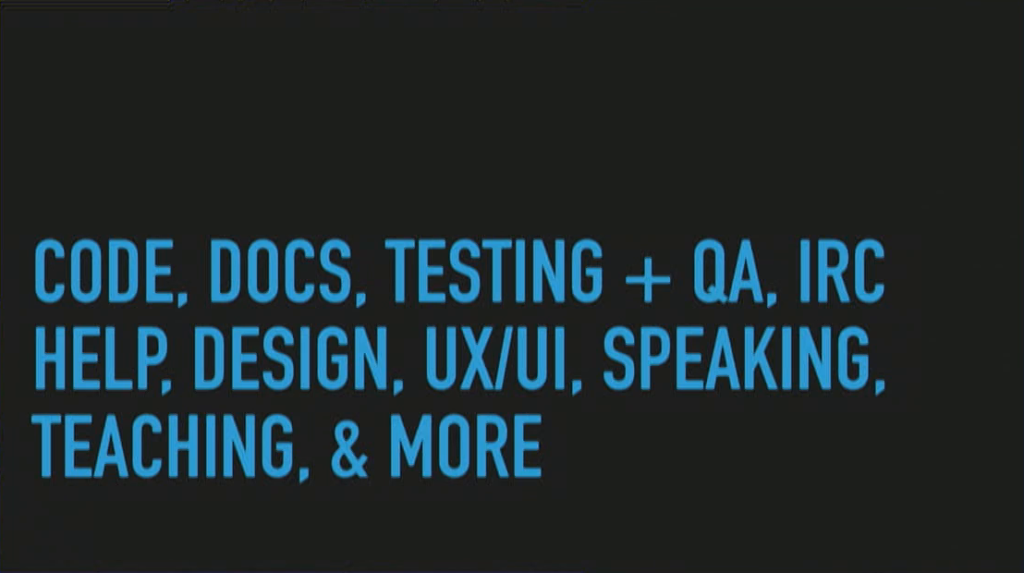
And I also want to mention that when I talk about open source, I’m not just talking about commits on Github. It is code, but it’s also docs, it’s testing, QA, all the people who spend countless hours in IRC, people who are doing design work, people who are solving problems internally in their companies and then turning around and contributing that back because they’ve noticed that there’s a bug in something. People who are bringing up bugs in open source. There a lot of different things that go into the labor of open source.
So who benefits from open source? Well, obviously we do as consumers, as I mentioned before. Almost every product that we have is embedded with a chip that likely has some very low-level code that was written by somebody up to twenty-five years ago that we still use today. Somebody that freely gave that labor to be able to have it proliferate and for us to be able to build on that.
But many of us as professionals also benefit from that, whether that’s the work that we do every day that we get paid for because somebody else has done that work in the past. Great, I don’t have to write out a login script one more time for my ecommerce website, because somebody has already done this for whatever I’m using.
But also, for the most part we’re looking at business owners and shareholders, stakeholders in large companies. There’s a lot of money that’s flowing into companies because of the unpaid labor that is contributed into open source software.
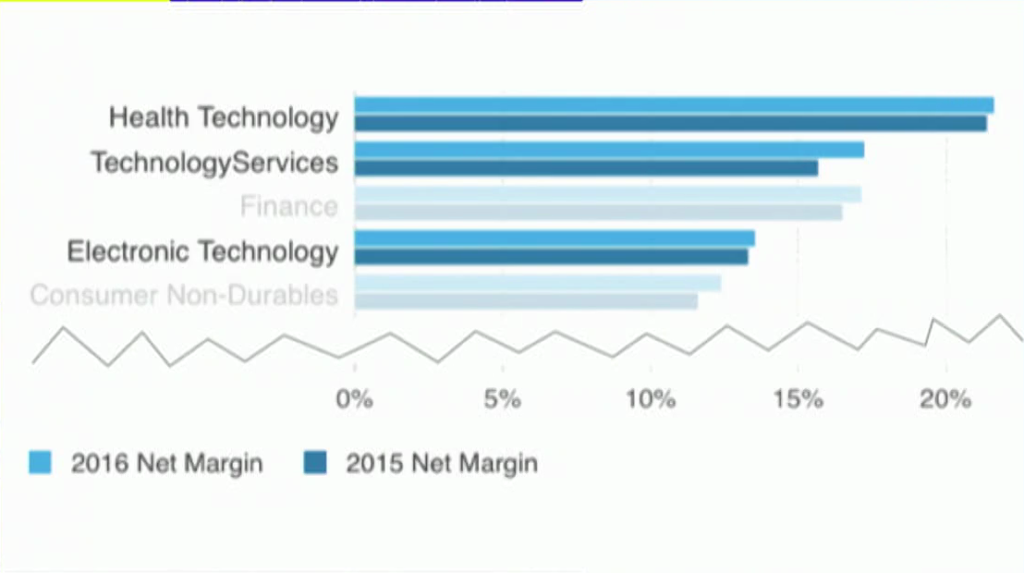
This is from Forbes for this past year. Of the top five sectors in the economy, three of those are technology, #1, #2, and #4. So the most profitable areas of our economy rely on technology, very many of which rely on this unpaid open labor.
So can we ethically approve of this unpaid labor? How do we discern the difference between whether it’s given freely, whether it’s coerced in a number of different ways? And this is a very tricky, sticky things. So we’re going to kinda dig into it a little bit so you can see where those differences are.
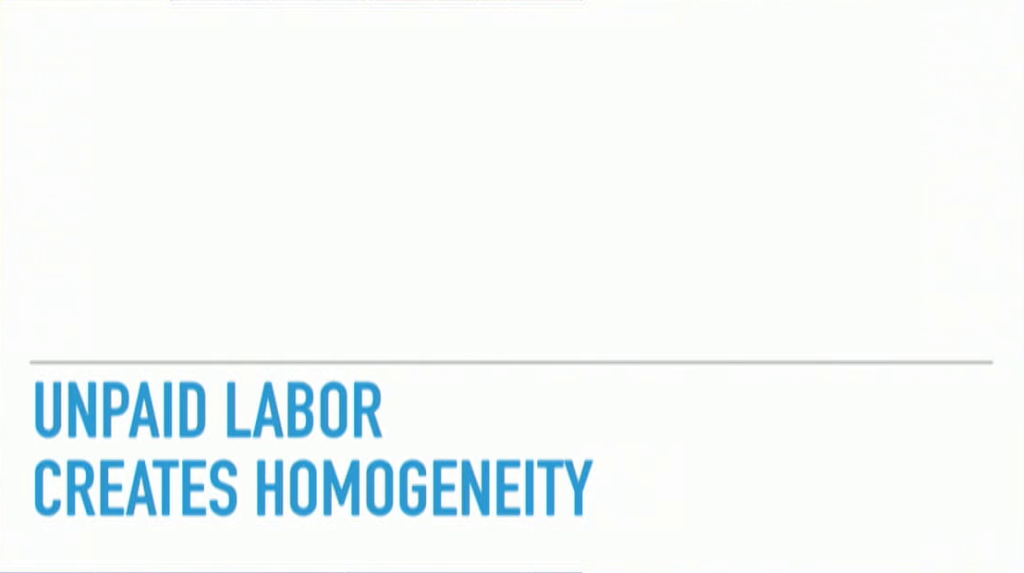
Unpaid labor leads to homogeneity. If any of you know of my work, a lot of what I do is around diversity and inclusion in the tech industry; around who has access to the technology that we use; what we create with that technology; who is able to join in in the industry; and who is able to get recognition for their work.
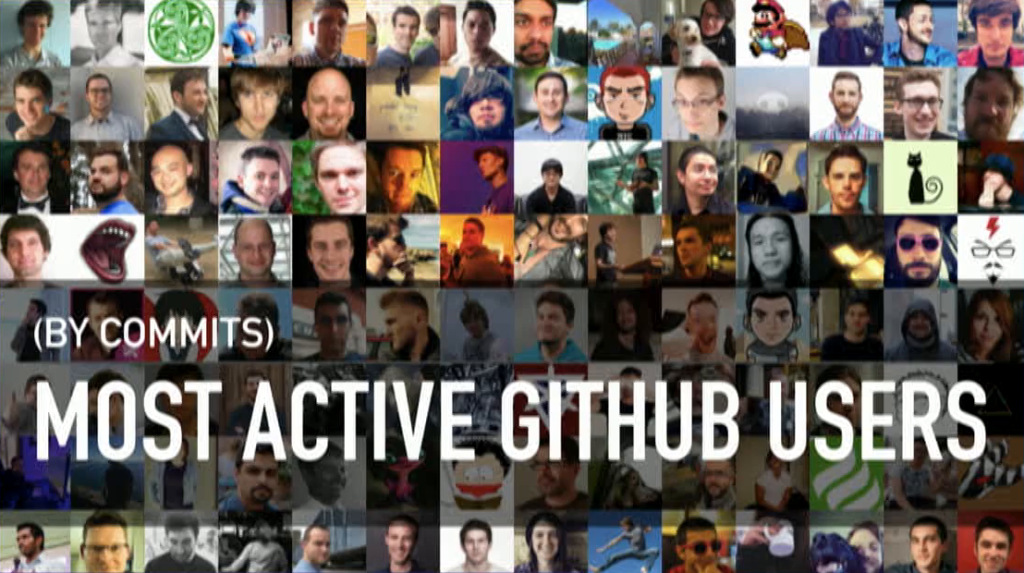
There is a really awesome Gist on Github that has a script that pulls in the top thousand contributors on Github by commits. And if you are able to look at this photo, you can see that very many of these people look very similar. Very many of them if you go down the list are from the United States. Very many of them are white. I’m not going to give exact numbers because guessing that is tricky business and I’m not going to. And very many of them are male.
That in and of itself is not a problem. The people who contribute greatly, the people who are able to, and the people who enjoy and love doing that should be able to do that and should be celebrated for the work that they’ve done.
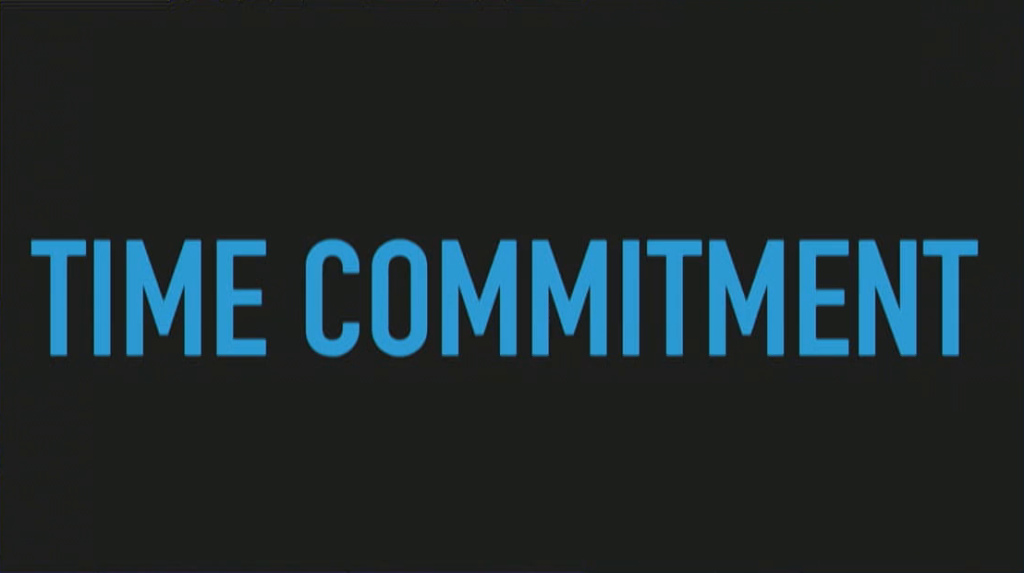
The tricky part comes in, though, in why they’re able to do that over other kinds of people. One major problematic area around that is the time commitment that it takes. If you’ve ever contributed to open source, even if you just opened one bug, the number of comments that end up on something that have you buried in emails at the end of the day, at the end of the week, the end of the month, you know how much that builds up even if it’s just one comment that you started with.
So it’s a very large commitment to begin contributing to open source, to actively contribute to open source, whether that’s writing it itself, trying to get it to work with other technologies, testing it, designing for it, or using that internally in your company.
And if we break that down and we look at how that affects marginalized people individually, because very many people are having to do open source outside of work, they’re doing it in addition to work, this is things that their employer is not paying for, it eats into time that would otherwise be used for familial things, for mental health, that kind of thing. And it affects marginalized people much more than it affects more privileged people.
So for instance women, and especially women of color, spend far more time caregiving and performing domestic labor. And this is important to note that it’s not for your own family, for your own children, but it’s also for other people. For a neighbor who has to work a second-shift job, for your partner who has to go to school in the evenings. So the time that you have allotted for those kinds of things is easily eaten up, that you would not be able to contribute to open source with the same amount of time that other people have.
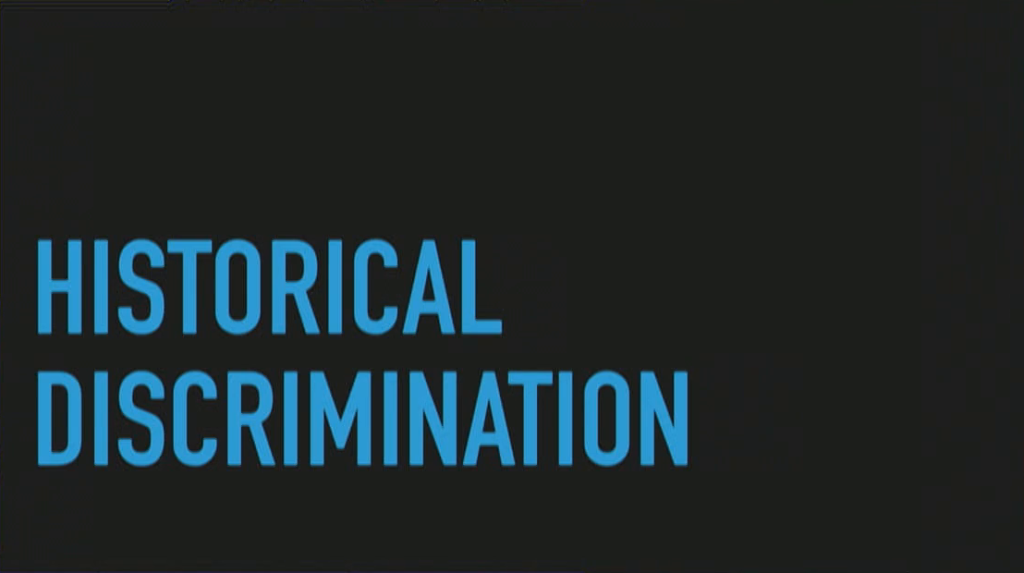
There’s also a problem of historical discrimination. Oftentimes very many of us are able to get jobs where we’re working in companies that pay us to contribute to open source during the day. That’s great. Not tons of companies do that, but I imagine a larger percentage of people here in this room have that experience, where you’re going to work, you’re working on something, you’re able to contribute back code that you were either able to fix something or adding new features, and not everybody has the opportunity to work in those kinds of companies.
Oftentimes when we’re looking at who has access to those companies, they’re people who have had access to those kinds of opportunities in the past. So if we’re looking at the resume of someone and we see that they have worked at a company previously that we recognize, that we know is a great contributor to the ecosystem that we work within, it only makes sense to bring that person in. Ah, they have experience contributing to open source on the job. They have experience dealing with people in issue queues. This is great. We will hire them.
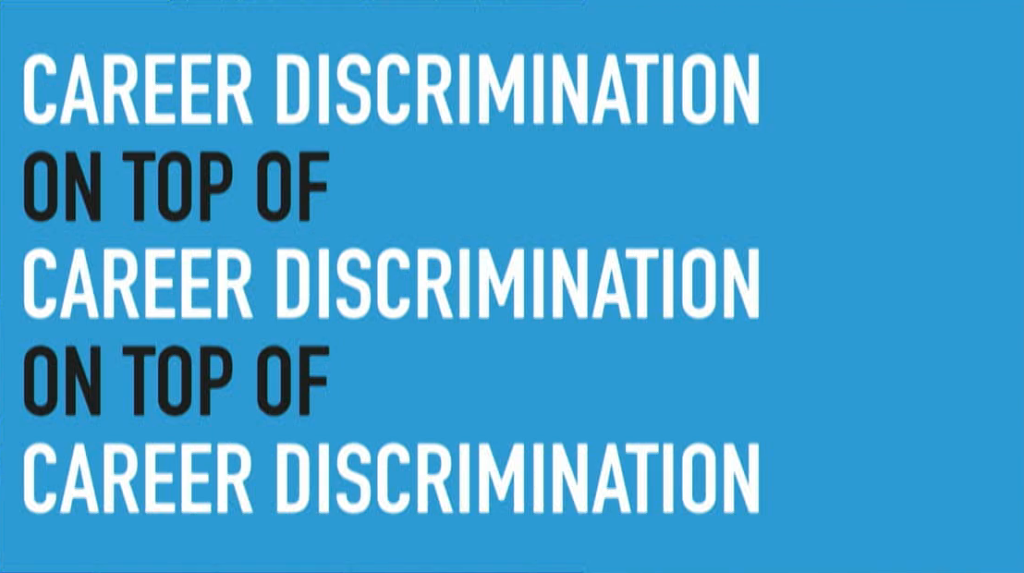
Which sounds all well and fine. But if you’re building on the discrimination that another company has committed against someone— Oh, this person has not contributed in the past. We cannot find any Github profile for this person. They don’t have any experience dealing with people in issue queues. And therefore they’re less likely to get this job.
So now you’re building on top of somebody else’s discrimination. So, now we have people whose entire career is based on this piling. Of every opportunity I’ve taken, I’ve not been recognized, I’ve not been given the opportunity to work at a company that allows me to contribute during work hours and being paid for that time. Because for many people they’re not able to do that outside of work.
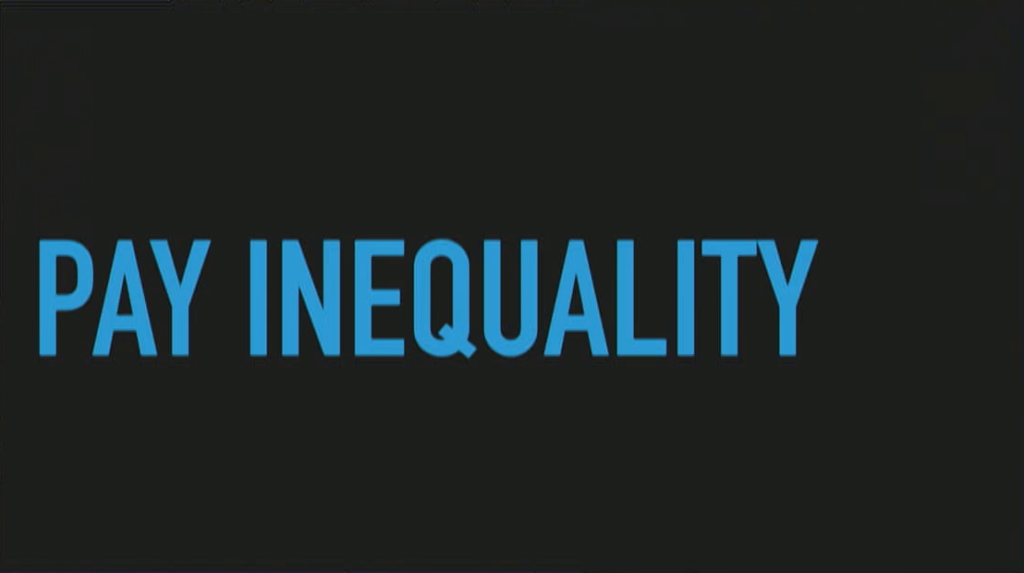
Pay inequality is also a gigantic thing. I think very much has been said over the past few years about pay inequality in tech spaces, so I don’t want to dig too much into that. But to say that there are things that we don’t necessarily realize that contribute to an entire person’s life aside from specifically the numbers on their paycheck. You make less money. That means you have to live farther outside of the city, farther away from work. Your commute is longer. It’s much easier to end up having to miss work or being late for work because your train was delayed, your kid’s school had a snow day and I can’t get in right away, and it’s going to take me a little bit longer. So these things are much more complicated than we expect. It’s not just the number on a paycheck.
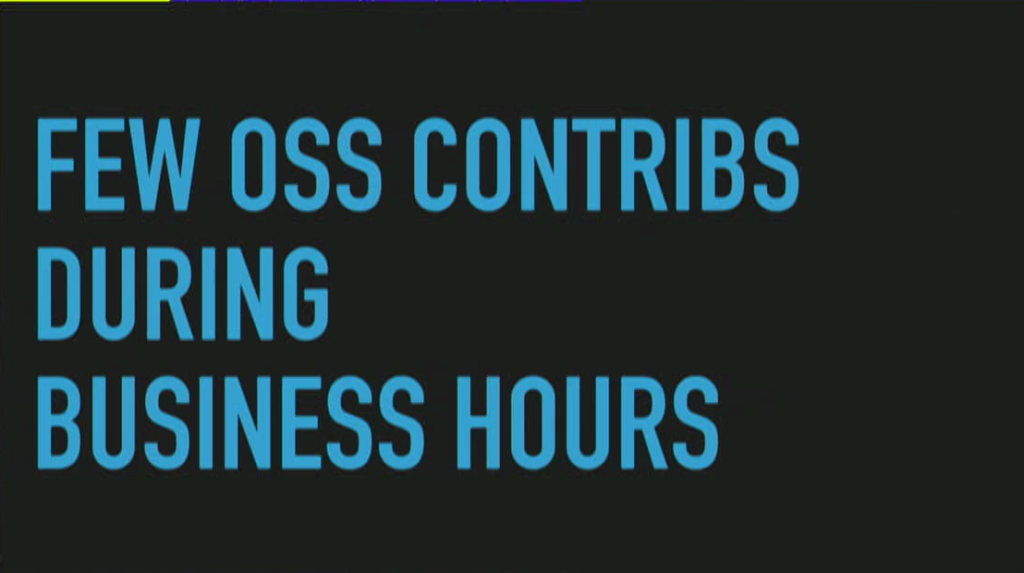
As I said before, few open source contributions are happening during business hours. Very few companies are giving people the opportunity, even if during work they’re using open source software, if their entire company’s built off of the use of different libraries and products, are giving people the opportunity to contribute back. And when we’re looking at again that afterhours time, it’s much harder to have a consistent amount of time when you have something like a chronic mental or physical illness that leads you to have to spend more time on yourself, whether that’s, “I can’t sit up long enough during the day. I can’t be sitting at my computer for twelve hours a day because I have requirements from my doctor that I be laying down for a certain amount of time.” Or you have different health regimens that require you to take medication, and you have to eat every few hours. You have to the doctor more frequently.
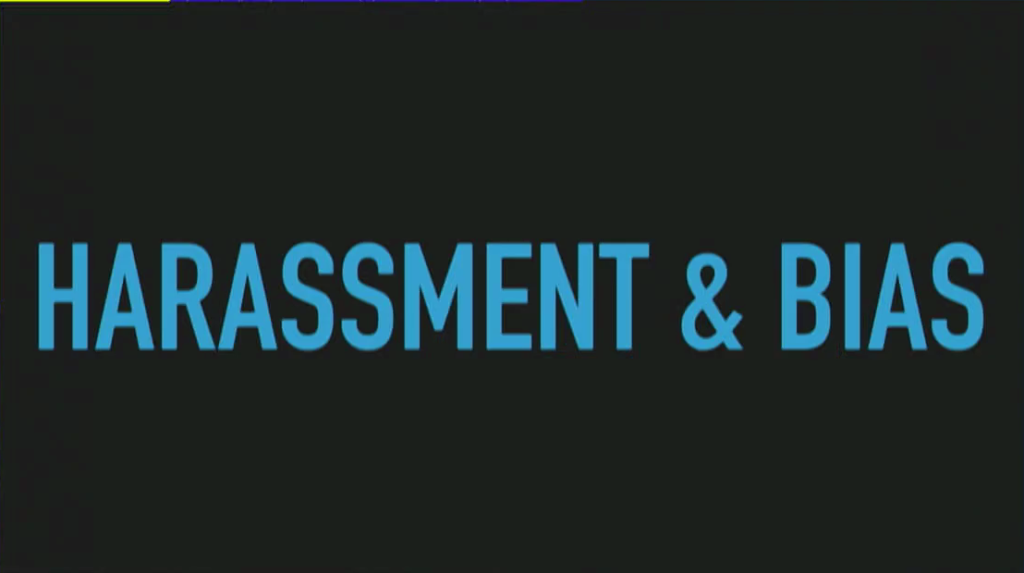
We also have a large issue around harassment and bias. And a lot has been discussed around this in a lot of different ways, not just in open source but in tech in general. Whether that’s on Twitter, whether that the way that people respond to somebody in the issue queues on Github. There are a few studies that were done showing that when somebody who is recognized as a woman, read as a woman, on Github contributed a piece of code, the number of comments on that post were doubled, tripled, quadrupled, over somebody contributing similar kinds of code that was perceived as male.
And I’m going to apologize. A lot of the examples I’m giving are very heavily skewed gender binary and basically no other identity traits. And that’s because there’s not a whole lot of research that’s being done into all of the different aspects of identity when it comes to having opportunity in tech. There’s one study that I read that said “this study was unable to find any black contributors.” And I was like like ugh. It’s heartbreaking and it’s horrible and it makes it much harder for us to track progress over time, to be able to discuss with people why it is they’re leaving early, if they’re not entering, if they’re not enjoying their time as much, and what contributes to all of those different things. So again I apologize ahead of time.
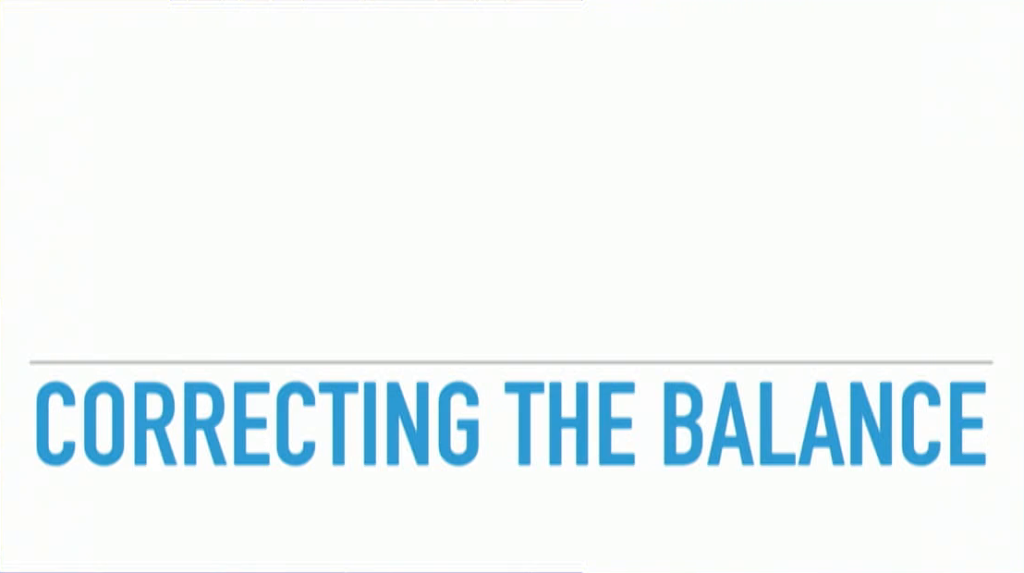
So how do we correct this balance? We have all of these different things that lead to this inequality in tech. We have all of this labor that’s being produced unpaid. How do we correct the balance going forward to make this a more equal opportunity for people, to see more different kinds of people brought in, and to see more products and tools that are being created for more different kinds of people and more different kinds of situations?
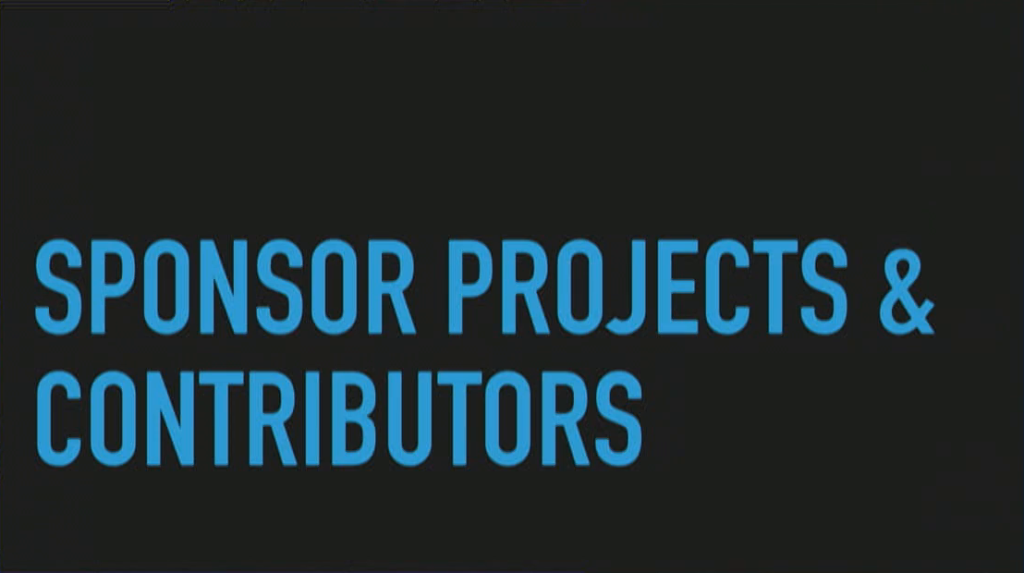
We can start sponsoring projects and contributions. Like I said before, for 2016 tech was in three of the top five positions in the economy. So we make a ton of money. I don’t think that that’s a surprise to anyone. Very little of that is being contributed back to different communities that are creating the products that allow companies to go further with their products, to be able to bootstrap and be able to work really quickly and to shift and change in the things that they’re doing.
So, there are a lot of different projects out there that allow you to contribute specifically to their developments. For instance Ruby has one that allows you to contribute directly to the people who produce Bundler. And if you’ve ever used Bundler before, as anybody who uses Rails knows, you run it constantly. So making sure that it’s not just one person who’s running this gigantic software project that is the backbone of this community, doesn’t get burnt out—because that is a major issue, doesn’t run out of time to be able to work on that next to “Oh, I have to pay my rent and eat sometimes,” you know, those kinds of things. Being able to contribute directly to somebody’s bottom line and showing that appreciation for their work can help mitigate some of those problems.
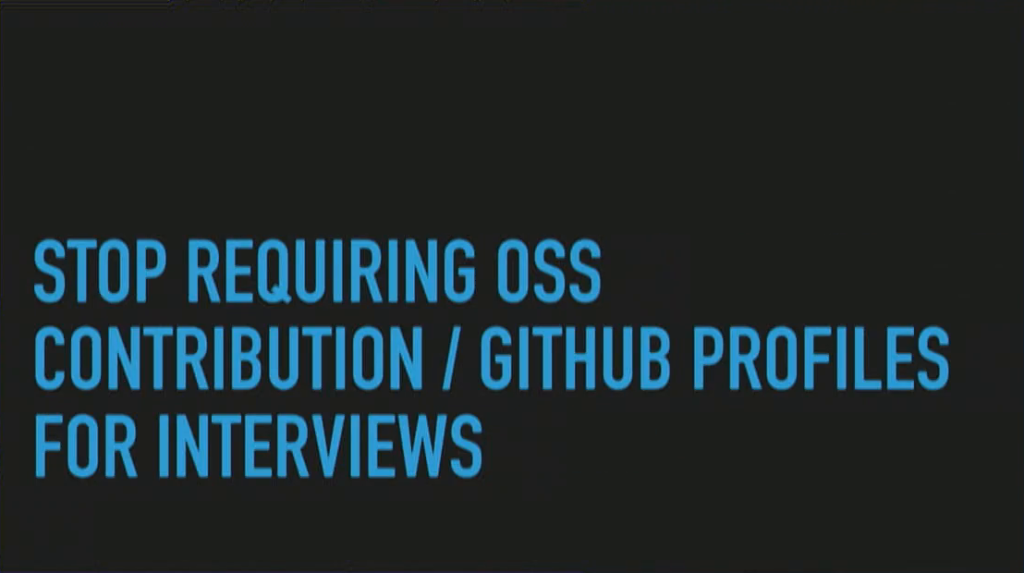
We can stop requiring open source contribution and Github profiles for interviews. I work a lot with different companies specifically in tech, and almost entirely in open source spaces. And very many of them don’t realize how large the imbalance is when we’re talking about requiring any kind of open source contribution history versus somebody who doesn’t. The numbers depend—there’s a survey that came out more recently, but it’s a little bit less reliable. But a survey that was done in 2007 showed that only 2.5% of all contributors to open source are women.
So if you’re saying we really need to hire more female engineers— (And again I apologize about the binary and no other identity markers there.) But if you’re saying we really want to hire more women and you also are saying we need to require that they have contributed to open source in some kind of meaningful way, I am telling you that person is already working somewhere else. They’re getting paid more than you would pay them, and appreciated more than you would be able to appreciate them.
So by requiring those things, by not saying this is something that can be taught, this is something that we can have somebody do while they’re working for us so we’re raising that 2.5% number, you’re basically contributing to this overall problem.
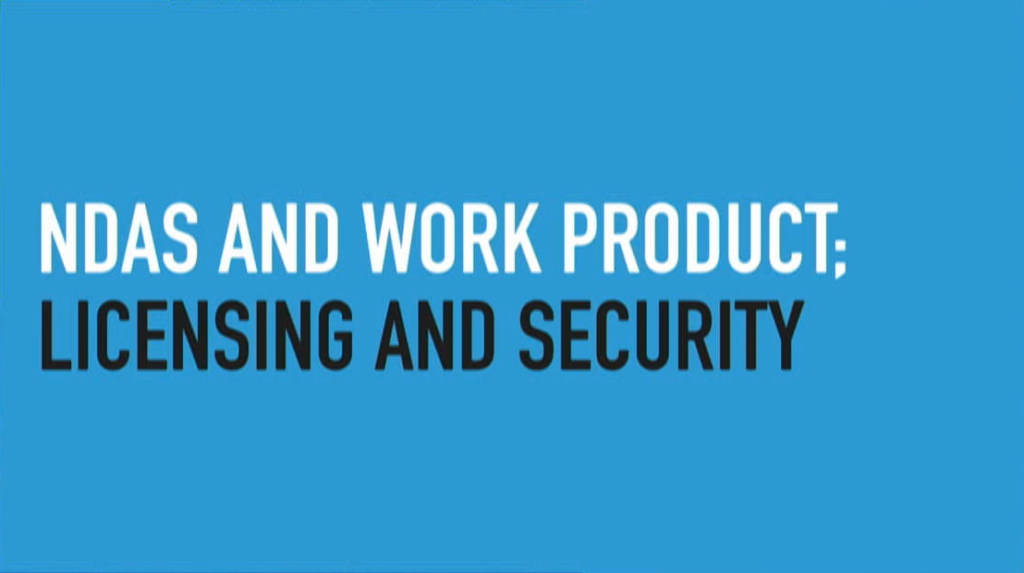
And remember that many people are working in areas of the industry where they’re under NDA, whether that’s they’re subcontracting or contracting, there are security or licensing concerns…that lead them to not even be able to contribute back to open source the things that they did, even if they wanted to. So there are a lot of different layers to that.
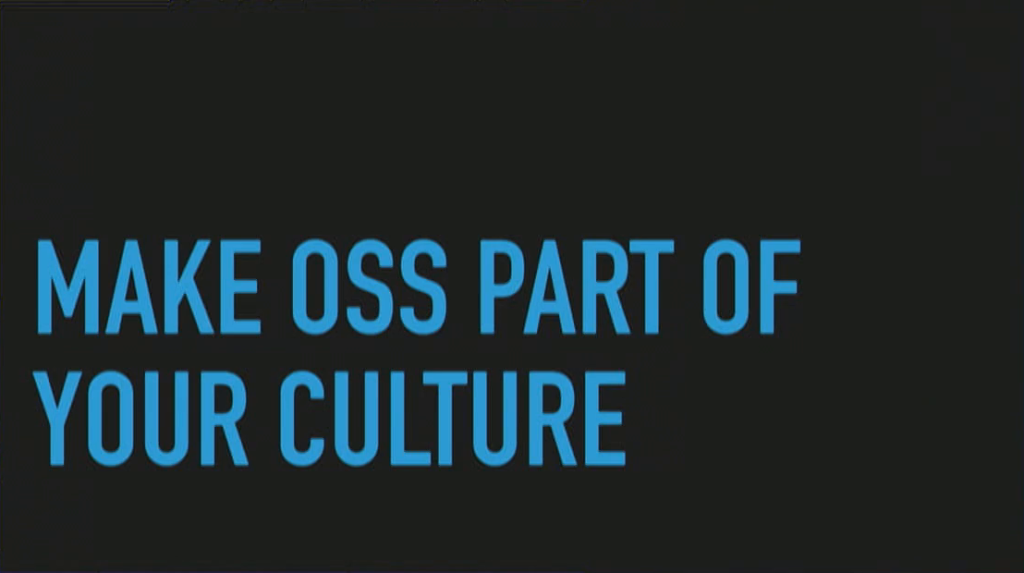
You can start making open source part of your culture. If your first instinct is, “This is a problem that we just found. Okay, once we get this shipped so our software is correct, so our web site isn’t going to crash because of this thing.” Now, let’s reserve sometime to contribute this back. Detail what the problem was. Work with other people to make sure that this actually is the best solution, and contribute that back, on billable hours. On office time.
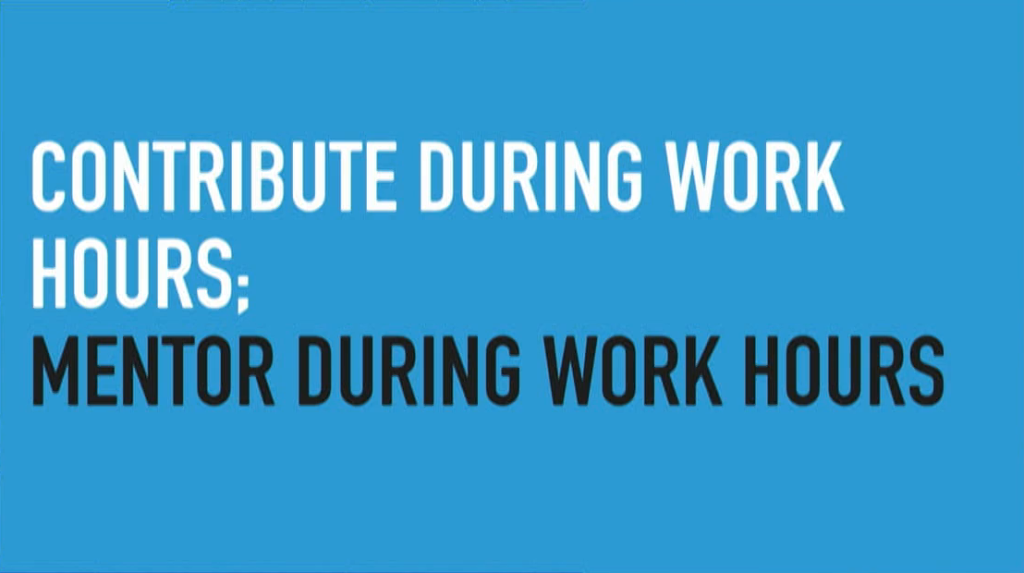
And also you can start mentoring during those work hours. Because contributing to open source can be incredibly nerve-wracking for a lot of people who haven’t done it before. Oh, not only am I coding in front of other people, but I have to prove myself and prove that I know what I’m talking about. I have to answer all of these questions from people I do not know, who may or may not be hostile towards me because I’m brand new. Who may or may not ignore my comments because I’m brand new, that they see that I don’t have any commits at all. It makes it much more difficult for that person to contribute.
So being able to pair with someone and say, “Hey, this is how we do it. These are the kinds of things that this project specifically is looking for, and what their styles and rules are. This is how we interact. This is how we get things ultimately merged into the project,” lessens that burden on them.
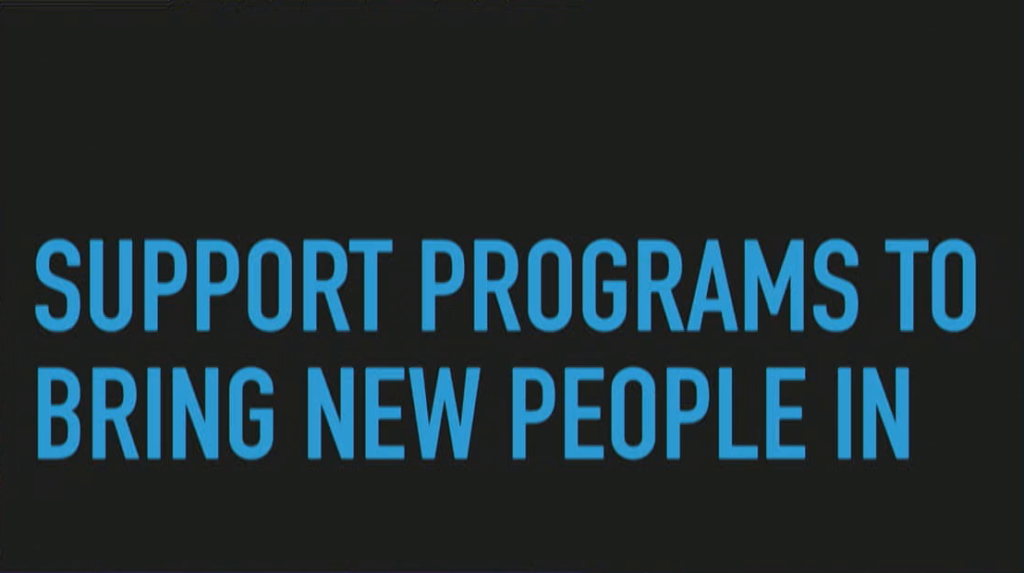
We can support programs that bring new people in. There are a lot of different ones that have been coming out recently, and I’m sure that many of you have heard of things like Outreachy, Google Summer of Code, OpenHatch. All of these programs introduced open source software to already-established programmers or people who are new to programming about how to contribute, pairing them up with already existing projects so they get familiar, so it’s not overwhelming, you’re not jumping in the deep end of the pool every single day. You’re getting more and more familiar with a specific projects and with specific people. You’re getting help through that.
Being able to contribute to those things, whether it’s you are mentoring people through your project, your company is providing the funds for people to have a livable wage, or just passing along the word to other companies who should and can contribute to those kinds of things are also super helpful.
So. There are a lot of different things that go into this. I know it seems really overwhelming. I work on so many different pieces of this moving puzzle. But I think it’s important to remember that as an industry that has an incredible amount of money, as an industry where we produce an exceptional amount of work that is used by tons of people all over the world in all different sectors—it’s not just technology, it’s health, it’s consumer electronics, it’s education. So many different places. We really owe it to the people and to our ecosystem to make this sustainable and a place that’s much more inclusive than it already is.
Because as it is right now, so many more people are burning out from the workload. So few people are being able to be introduced in a way that is non-coercive—I don’t feel like I have to contribute to be able to get a job, because every job requires that I contribute meaningfully and continually to open source. And it can be a fun and enjoyable experience. We shouldn’t have let the way that open source has grown go from “I need to solve this problem and proprietary software doesn’t let me,” to, “Every company is using my labor and is not giving anything back and still demands more of me to be able to even hire me.” It’s not a tenable solution.
So we have a responsibility, each of us, people who run companies, people who go to conferences, to remind that we have a responsibility to broaden what our definition of contribution is. It’s not just people who commit code. It’s not just people who merge it. It’s not just people who run the projects. And to actively contribute to a much more sustainable and inclusive practice that leads to more different kinds of people being able to participate in the system.
So thank you so much. My name is Ashe Dryden. You can find me online. I’m Ashe Dryden pretty much everywhere. But I’m happy to answer your questions.
Audience 1: I’m not sure how to start this. I highly empathize. The idea of being paid for your labor is important. It’s essential. But I’ve been doing open source for twenty-five years since before we called it open source. And for about five years of that total, I haven’t been paid for that labor. I was doing awesome sorts of open source programming, coding, giving stuff away for free. I don’t get paid for it, I get paid because of it.
Ashe Dryden: That’s great.
Audience 1: And that’s led to a career today. So how does one factor that value in the fact that having contributed to open source generously at my own cost and living in student digs at the time, it gives me a foundation to build a career on? How does one factor that into your argument?
Dryden: Sure. Absolutely. So if I may be so bold to assume you are white. And male. Okay. Hold on, it’s not to be snarky.
Audience 1: [inaudible] …nerdy and cis and a variety of other labels. The normal labels that went along with geekery in 1985.
Dryden: Sure. And that’s not an insult at all. It’s identity markers, right.
Audience 1: [inaudible] …just a stereotype…
Dryden: Well, it’s not stereotyping—
Audience 1: Yes it is. [inaudible]
Dryden: In any case. The question is how do you—
Audience 1: Or is it like Trainspotting?
Dryden: … Yes, can I finish speaking, please? So the question is how do you reconcile the fact that having contributed to open source in the past has given me a career. And that is an excellent question. A lot of people get that experience, and we know through various studies that the vast majority of people who begin programming from an early age, who have access to computers and other technology, including the Internet, an early age, tend to fit into one group.
It is not a bad thing at all that you were able to contribute to open source, and that you were able to do so without being paid, and whether or not you feel like you were repaid for that. We’ll leave that up to you. But the fact that you were in that situation of being able to do that is not a situation that everybody experiences. So because you were more likely to receive pay parity with your peers, the likelihood that you had other people supporting you in any other kind of way whether that was emotionally, physically or whatever— I’m talking statistically. …is going to be different for each person. And that’s perfectly fine but we’re looking at and what it means to be a marginalized person in the spaces. What it means to have access to those opportunities. And that is going to be drastically different for the more privileged amongst us.
So if you can and you want to contribute to open source without being paid. If you feel like you’ve been repaid because of the crew the you have—which I have, so I greatly appreciate that. But it shouldn’t be a revolutionary idea that people should be paid for their worth, for their work. And that is really more the message that I’m sending. If this is something you want to do as a hobby, something that you love doing in your own time, that’s perfectly fine. But not everybody has that opportunity. So we’re looking at creating a system where people do have that opportunity equally.
Audience 2: I went from working for a proprietary software company to an open software company. I have that privilege. But one of the things I noticed when I went to the open software world was wow people are cruel to each other.
Dryden: Cruel, is that what you said?
Audience 2: And wow people can be mean. On bug reviews, on mailing lists, like anybody who’s ever seen the Linux kernel mailing list. I mean…my god. And that was a big surprise to me. And I don’t know if you know of research about this, but that might tie into it. Because if I belong to a marginalized group—which I don’t—but if I somehow belonged to a more marginalized group, I feel like I’d be like, “I’m dealing with enough crap in daily life. I don’t want this in my volunteer contributions. I’ll go help kids in Africa or something,” right? I don’t know. Do you think there’s just a culture in open source also that might just not be friendly enough?
Dryden: I think it really depends on the community that you’re in And every community has pockets of good and bad, too. So I don’t want to cast a wide net there. But I think that you mentioned Linux, and I think that that is a really obvious thing to point out, right? Like, when you have the heads of the project who expect a certain kind of behavior and who aren’t shutting things down when they start to get abusive, it’s not about constructive criticism in your commit and making sure that we only push the best things into the kernel. it’s abusive and it’s showing dominance and showing that I’m smarter than you and that builds me up, that is an unhealthy environment. And it’s much more difficult to be able to change that when you’re lower than the people who are doing those kinds of things.
So yes, I definitely agree that it is hostile. There’s tons of harassment. There’s lots of studies out there around the way that people get treated in IRC and Github issues. And I think that if anybody here is on Twitter and follows anybody who does open source software, you see how regularly they have to deal with crap, or how many horrible things come up. But there are also good pockets. There are lots of places that are working to be much more inclusive, and we need to kind of look to them as mentors for those kinds of things.
Further Reference
The Ethics of Unpaid Labor and the OSS Community, Ashe Dryden, 2013
